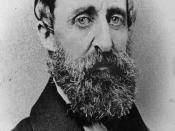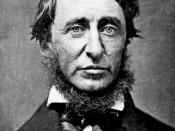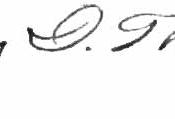Thoreau believed human life mimicked that of nature. Thoreau used the simile of how a day is like a year: "The night is the winter, the morning and evening are the spring and fall, and the noon is the summer" (200). Therefore, following Thoreau's theory, if nature is 'reborn' every spring and never actually dies, then life should be eternal as well. Thoreau describes spring at the pond as rejuvenation from the 'death' of winter:
"At length the sun's rays have attained the right angle and warm winds blow up mist and rain and melt the snowbanks, and the sun, dispersing the mist, smiles on a checkered landscape of russet and white smoking with incense, through which the traveller picks his way from islet to islet, cheered by the music of a thousand tinkling rills and rivulets whose veins are filled with the blood of winter which they are bearing off" (202).
Winter is more like death or a latent state of the world: "Like the marmots in the surrounding hills, it closes its eyes and becomes dormant for three months or more" (189). Thoreau believed that human life was also like this. Although man's life on earth is over, it does not mean life itself is over; just as Thoreau himself said, "So our human life but dies down to its root, and still puts forth its green blade to eternity" (207).



Too short and bare
I really don't believe three paragraphs do justice to describe Thoreau's views of life in Walden. A majority of the essay is referencing directly from the novel without an in depth explanation of why the quote was chosen and the importance of the quote within the paper. A good first effort, but more is required.
3 out of 3 people found this comment useful.